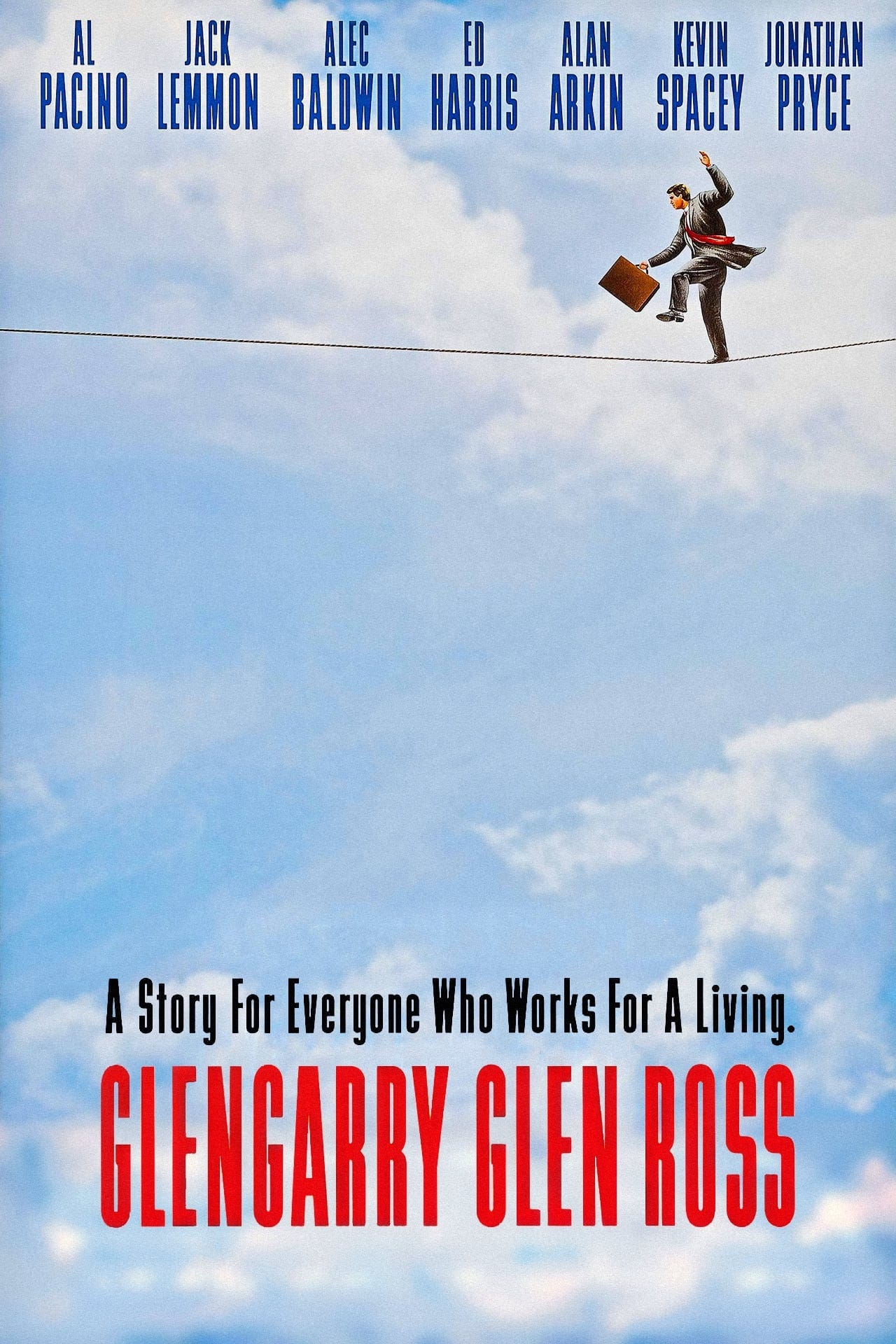The Most Famous Scene in Glengarry Glen Ross (1992) Came From a Studio Note (Sort Of)
Many years ago, when most of my friends and I were graduating college and getting jobs (or, in my case, going to graduate school to avoid getting a job), one of my buddies began his career by taking a low-level job at the Zaxby’s corporate office. You know, the purveyors of mediocre fast-food chicken that you might purchase when there’s not a Popeyes, Guthrie’s, or Bojangle’s nearby.1
My friend struggled a bit out of the gate. Maybe it was the fact that he was 22 years old. It could’ve been compounded by the fact that it was the tail end of an economic recession. More than anything else, though, it was probably a symptom of his boss being a workplace psychopath.
Case in point: This man gave my friend a copy of Glengarry Glen Ross…and told him to study it. Without a shred of irony or awareness, he pointed out Alec Baldwin’s expletive-laced “always be closing” monologue as an exemplary tenet of running a fast-food franchise. It’s one of the most incredible examples of missing the point I’ve ever heard, and I’ll never forget it.2
Here’s one thing I did forget, though: This scene is not in David Mamet’s original stage play.
Glengarry Glen Ross is one of my favorite plays—I’ve seen it performed four times by three troupes in two states—but my brain fog caused me to forget this fact until I attended Birmingham Festival Theatre’s production of the play last year. The whole thing sizzles, of course, but I found myself waiting for a speech that would never be heard from a character that would never grace the stage.
Mamet wrote the play based on his own experience working in a real estate office, and it was a big ol’ hit, winning him a Pulitzer Prize and earning four Tony Award nominations.3 And when it was optioned for a feature film years later, Mamet adapted the screenplay himself, changing very little about the story aside from this addition.
Funnily enough, the suggestion came from the folks at New Line Cinema. Well, sort of.
According to a recent interview with John C. McGinley—who played one of the lead characters in a 2012 Broadway revival of the play—it was a case of clever interpretation on Mamet’s part: “They asked him to put a special effect to get the movie going, like an explosion or something. And he wrote the Alec Baldwin diatribe. That’s the explosion that’s not in the play. Alec’s character is a threat off-stage in the play.”
And what an explosion it is. A seven-minute berating full of iconic lines (“Coffee is for closers only”) and unfiltered corporate vitriol. The part was written specifically for Baldwin, and he loved it so much that he didn’t even mind that it’s his only scene in the film. And it’s become a shorthand encapsulation for the film itself: If you search YouTube for “Glengarry Glen Ross,” the first suggested addition will be “Alec Baldwin speech.”
Mamet’s stage play was already filled with greedy salesmen navigating a cutthroat business, but I wonder if there’s more to the motivation for this first-act spark in the screenplay.
You could point to the easy answer of the political climate: When the play first premiered in the fall of 1983, Ronald Reagan was gearing up for a landslide reelection victory a year later, and by the time the film went into production, George H. W. Bush had succeeded him by promising more of the same. It’s hard to think there isn’t some level of economic satire baked into the text, especially that scene. Unless you’re a Zaxby’s executive. Or present-day David Mamet.4
Come to think of it, this film did hit theaters one month before the 1992 election. Did Mamet’s cautionary tale of corporate greed cost Bush a second term? Was Alec Baldwin merely practicing to play Donald Trump on Saturday Night Live 24 years later? Could “Third prize is you’re fired” be a perfect summary of Ross Perot’s presidential campaign? I need a cup of coffee.5
Glengarry Glen Ross is now streaming on Hulu, Peacock, Kanopy, and Pluto TV, and it is available to rent elsewhere.
Noted SEC honk Spencer Hall posted a tiered ranking of fast food chicken a couple years ago. I agreed with much of his list, but the Zaxby’s placement in particular is spot on.
I think it’s entirely possible that this Zaxby’s stooge never watched the entire film, or even more than this one scene on YouTube. But even then…how does one watch that scene and think it’s a good way to run a business?
Joe Mantegna won for Best Featured Actor—an award he won over his co-star Robert Prosky—and the play itself was nominated for Best Play. I don’t know anything about the Tonys, but I assume this is pretty good.
David Mamet was pretty liberal at the time, though he has since surged in the opposite direction. I hesitated to even write this piece, because I disagree with just about every political statement he’s made over the last decade and a half, culminating in his shameful and dangerous claim in 2022 that school teachers are “inclined…to pedophilia.” But I hope you’ll grant me a separation of the art from the artist in this case.
My editor John is on vacation at Disney World this week, so he didn’t give this one a pass. But I think I really nailed the ideal structure for this newsletter: Useless anecdote, interesting but Googleable fact, unanswered speculation, then crashland the plane. That’s the stuff.




The ironic thing- even though Alec Baldwin’s character is a top tier asshole, he’s still 100% right! Always Be Closing is every good salesman’s mantra, like a metronome in his brain!
People love that speech unironically as a motivator. I do! I have a friend who can recite the entire thing from memory.